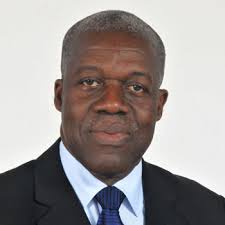 Vice President Kwesi Amissah-Arthur has called on stakeholders at a national dialogue to fashion out a collective strategy to raise inflows from both traditional and non-traditional export.
Vice President Kwesi Amissah-Arthur has called on stakeholders at a national dialogue to fashion out a collective strategy to raise inflows from both traditional and non-traditional export.
He said the nation must also adopt a radical import substitution agenda as well as continue with the implementation of the comprehensive structural transformation plan.
Mr Amissah-Arthur was speaking at the National Stakeholders Dialogue on Boosting Ghana’s foreign exchange resources in Accra.
The meeting attracted business persons and economic operators to share their experiences, insight and expertise to enhance the much needed consensus at economic management, particularly in resolving the unfavourable imbalances in trade.
Mr Amissah-Arthur noted that government would continue to review and reform the tax and tariff regimes, incentive schemes and general costs of doing business to ensure that the investment climate is more competitive and attractive.
He urged the participants to use dialogue as an opportunity to practically take on the task of balancing the trade by reducing imports and boosting exports through smart policy intervention in the short term.
He called for strategies to increase the outputs and improve the profitability of the agricultural and industrial sectors as a first step.
Mr Amissah-Arthur expressed the confidence that the various presentations at the conference would provide sufficient facts and figures on the country’s foreign exchange inflows, export revenue, import outflows and allied expenditure, dwindling production levels and loss of foreign market shares.
He urged the participants to work together to forge a consensus on how best the nation can boost its foreign exchange earnings.
He charged the business community to share their considered solutions in order for the country to have better working policies, systems and processes for sustained growth and development.
Mrs Mona Quartey, Deputy Minister of Finance stressed the need for structural paradigm shift to boost the country’s foreign exchange earnings.
She said this paradigm shift could be done prior to consolidating both the supply and demand side of the economy, adding that, the mix policies and reforms are also to consolidate the government efforts.
She said the current fiscal consolidations are to address the challenges such as revenue mobilization, borrowing and expenditure.
